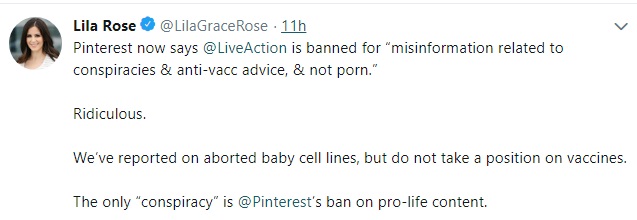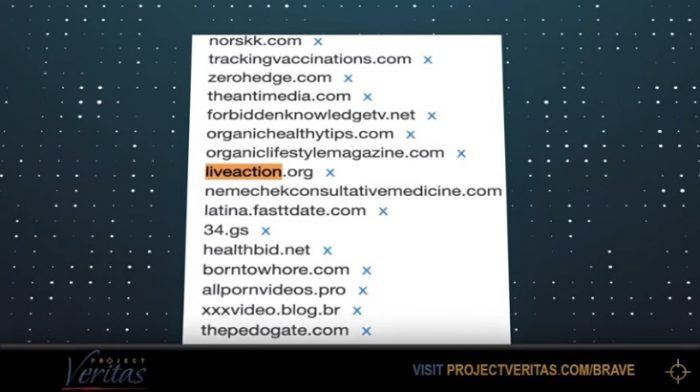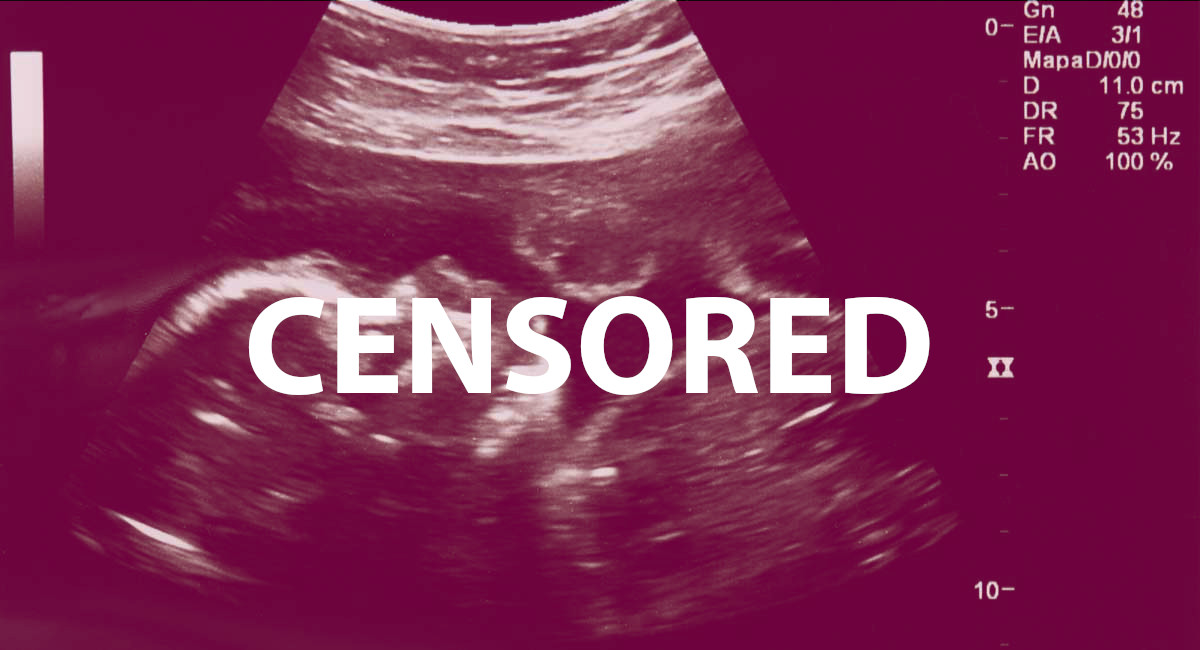Live Action is taking action to fight censorship as Big Tech companies continue to suppress the organization and its pro-life message. YouTube and Pinterest have both acted to violate the law through illegal and discriminatory action against Live Action because of its pro-life mission.
In December 2018, YouTube began suppressing Live Action’s videos despite the pro-life organization’s successful history of amassing hundreds of millions of views. The decision of YouTube to silence Live Action stemmed from the request of writer April Glaser of Future Tense, who requested that YouTube alter search results associated with “abortion.” Glaser was bothered by the fact that such a search led to top results that included Live Action’s “Abortion Procedures” videos in which former abortionist Dr. Anthony Levatino explains each abortion procedure step by step. Shockingly, YouTube fulfilled the request of this writer by pushing the “Abortion Procedures” videos from the top results to below the 150th.
From there, YouTube began taking more steps to suppress Live Action’s pro-life message, preventing Live Action from placing video advertisements on the site. In May 2019, delays and other issues began to occur in both YouTube’s approval process and delivery of Live Action ads. Some ads were disapproved by YouTube for suspicious reasons, including the video “Personhood” which was labeled as “unavailable.” Other videos were approved but labeled as “limited” status, preventing them from being viewed by certain audiences.
“In reliance on YouTube’s promises, Live Action generated video ad content, and satisfied all of YouTube’s various conditions and terms of service posted on its website and on affiliated websites, which satisfaction YouTube has acknowledged by approving the ads. Nevertheless, YouTube failed to deliver the promised advertisements,” Harmeet Dhillon of Dhillon Law Group, an attorney who is representing Live Action, said in a statement.
“As a result of this failure to perform, Live Action has suffered monetary losses, including the expense and effort required to generate ad content, and has effectively been banned from an important quasi-public speech forum on a pivotal issue of public interest: abortion. Accordingly, YouTube is in breach of its agreement and promises […] and is liable for the same,” Dhillon continued.

Lila Rose Tweet on Pinterest blocking Live Action
As for Pinterest, it was brought to Live Action’s attention by Project Veritas, an American non-profit organization that works to expose private and public corruption, in June of 2019 that Pinterest was censoring Live Action’s message. It is currently impossible for any Pinners to pin a Live Action link to the Pinterest site. Pinterest accomplished this by erroneously labeling LiveAction.org as “porn” which placed the pro-life site on the internal domain blacklist.
Project Veritas had learned of the censorship by Pinterest from Pinterest employee and whistleblower Eric Cochran. On June 10, 2019, Project Veritas contacted Pinterest for comment and Pinterest removed Live Action’s website from the domain blacklist. However, on June 11, after Project Veritas published their interview with Cochran, Live Action learned that its Pinterest account had been “permanently suspended” because its content was marked inaccurately as being in violation of Pinterest’s “policies on misinformation.” Pinterest called Live Action’s pro-life message “harmful” and that its “conspiracies … turn individuals and facilities into targets for harassment and violence.”
“Regrettably, Pinterest’s conduct to date suggests that Live Action cannot expect equal treatment on equal terms from Pinterest; instead, it appears that our client can expect kneejerk reactions and poorly thought-out pretexts for speech suppression,” said Dhillon. “Pinterest’s blatant and arbitrary discrimination against Live Action violates California law, and entitles Live Action to compensatory and injunctive relief.”

Live Action blocked as Porn site at Pinterest per Project Veritas
On behalf of Live Action, Dhillon Law Group sent cease and desist demand letters to both YouTube and Pinterest on August 21, 2019, telling the companies that they had until August 30 to fix the issues at hand. Live Action is exploring all legal options to confront censorship and expose the discriminatory suppression carried out by YouTube and Pinterest.
“When reviewing the evidence in both of these cases, it is quite clear that YouTube and Pinterest have engaged in discriminatory and speech-suppressing actions that have led to monetary and reputational damages to our organization,” said Live Action founder and president Lila Rose in a statement. “We have played by the rules outlined by these enterprises, paid our bills and lived up to the terms of service agreements, yet they still choose to discriminate against us because we are a pro-life advocacy organization.”
“Like” Live Action News on Facebook for more pro-life news and commentary!







